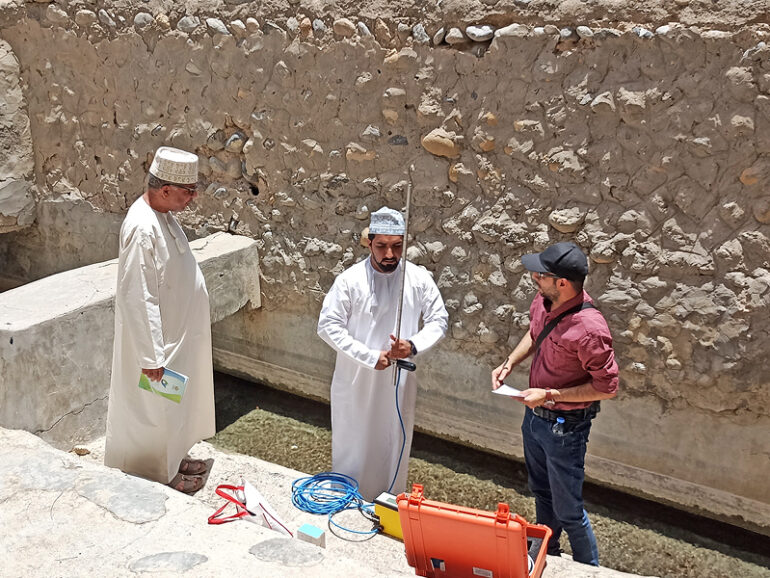
Muscat – A new study sheds light on how Oman’s ancient falaj irrigation systems have long supported social cohesion and economic resilience in tribal communities, offering lessons for sustainable development today.
The research, titled Aflaj Systems and Social Cohesion in Oman, Dakhliyah Region, was led by Dr Majid Labbaf Khaneiki, Assistant Professor and Unesco Chair on Aflaj Studies and Archaeo-Hydrology at University of Nizwa, and funded by Ministry of Higher Education, Research and Innovation.
Khaneiki and his team explored how these traditional underground water channels served not only as irrigation tools but also as a framework for cooperation across tribal boundaries.
“While many have viewed tribal societies as resistant to external change, our findings show that Oman’s falaj system is a unifying force. We call this ‘hydro-tribalism’ – a social model built around shared water governance,” Khaneiki said.
The team focused on Dakhliyah and combined ethnographic fieldwork, interviews, archival research and literature reviews. They found that the technical and geographical features of falaj networks require shared investment, common agricultural practices and joint decision-making, creating a long-standing system of interdependence.
Historically, these systems have been supported by waqf (endowments), which funded critical agricultural and trading infrastructure. However, urbanisation and environmental stress now pose threats to their continued function.
“This research shows that a falaj is more than a water source – it is a foundation for community ties, sustainability and resilience,” Khaneiki said. “Protecting aflaj is essential for preserving both heritage and the values these represent.”
The study calls for safeguarding falaj systems as both environmental and cultural heritage, arguing that these offer a model of cooperation vital for modern sustainability goals.
It was published in Journal of Arabian Studies and GeoJournal.
The research team included Dr Abdullah al Ghafri, Amjad al Rawahi, Dr Khalifa al Kindi, Dr Nasser al Saadi, Zahra al Abri and Ishaq al Shabibi.
© 2021 Apex Press and Publishing. All Rights Reserved. Powered by Mesdac